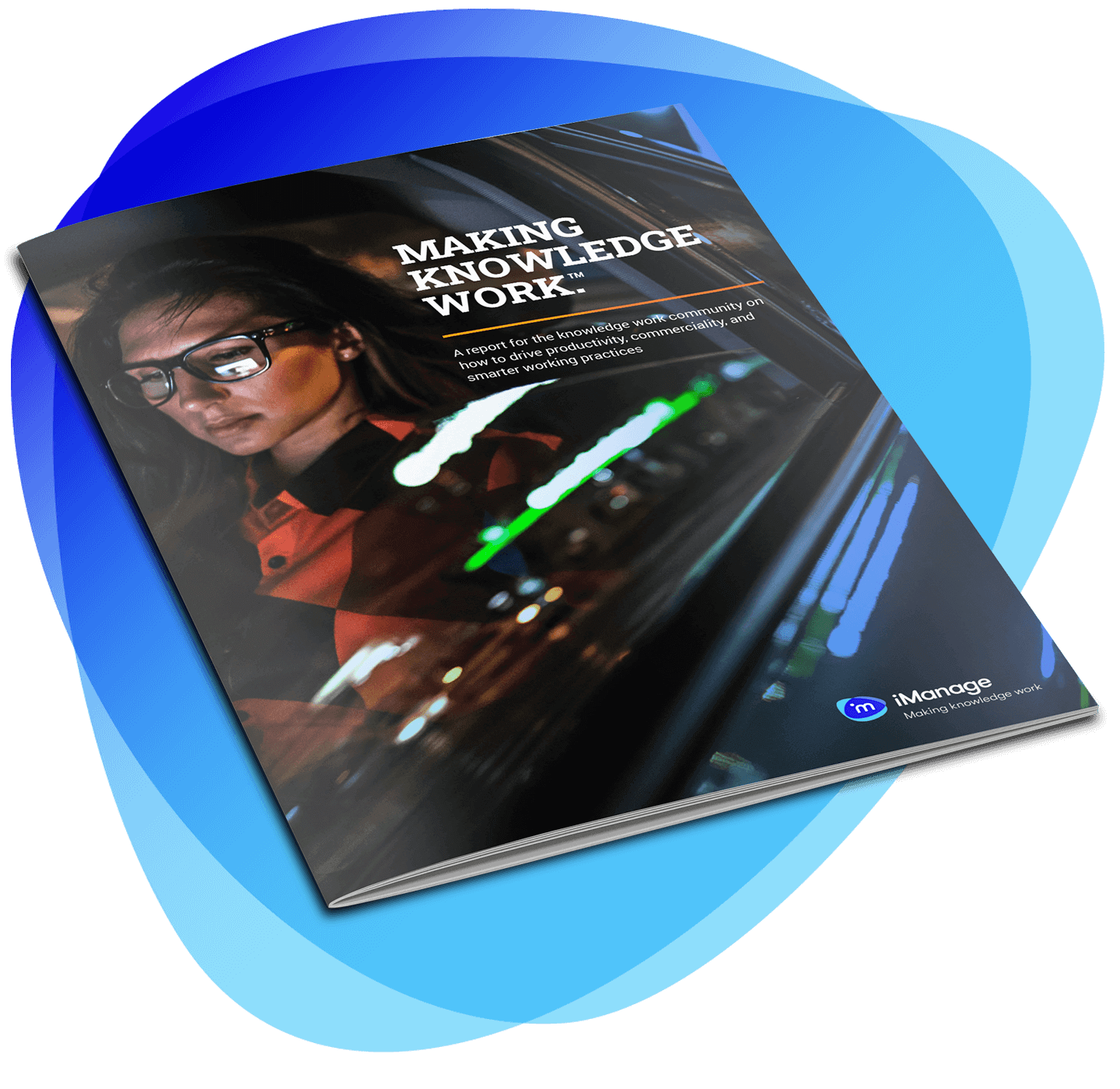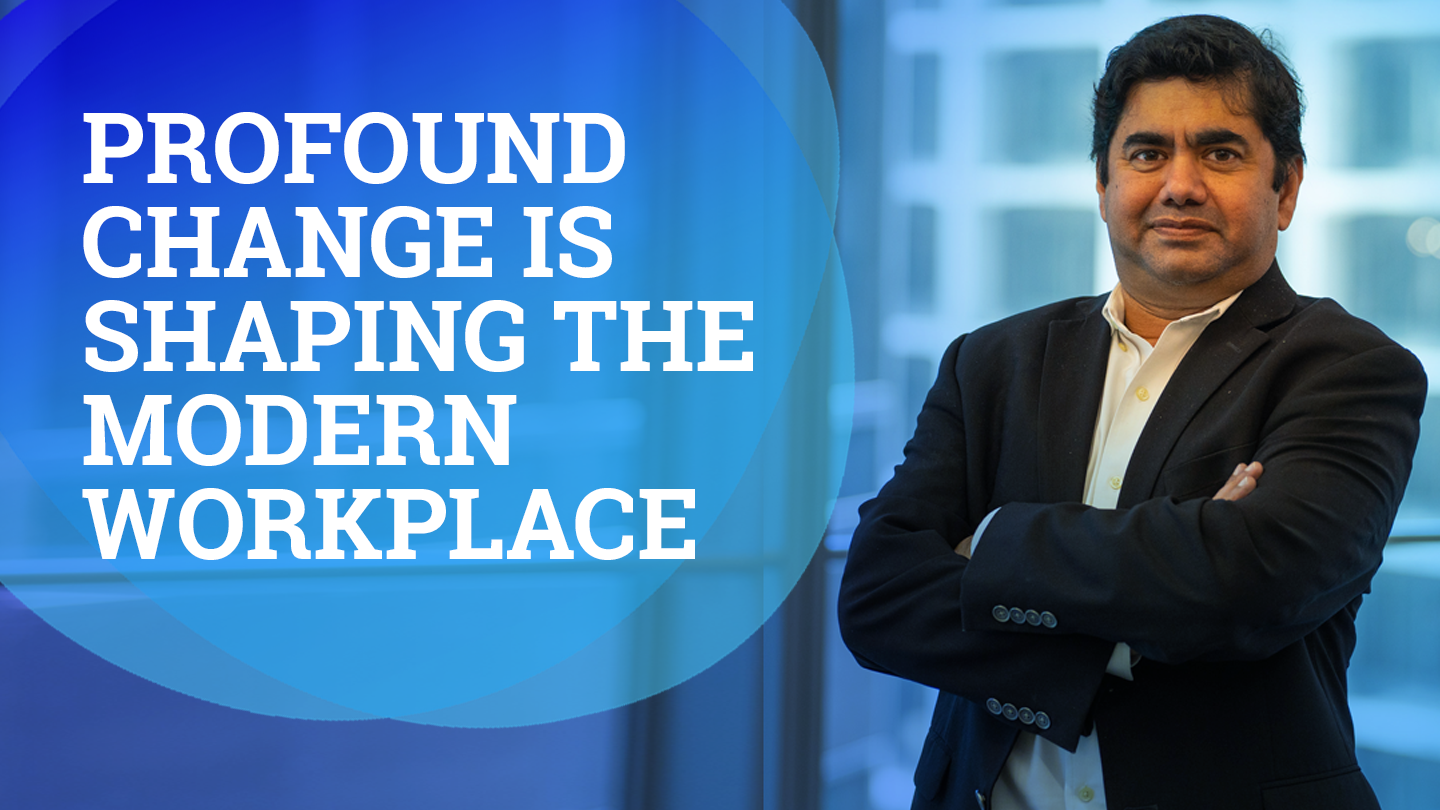As part of an ongoing webinar series, in collaboration with Alternative Hangouts, a panel of leading legal, accountancy, real estate, and management consulting experts convened to share how they have been unlocking and leveraging organisational knowledge to meet clients' evolving expectations.
Knowledge in professional service organisations is a collaboration on many levels. Be that between firms and their customers, colleague to colleague, and the more progressive amongst you, between the knowledge held within your technology stack and the technological processes that aid the secure organisation, retrieval, and insight of knowledge itself.
This fantastic Alternative Hangout session for Professional Services and its supplementary poll results highlighted how much value is placed by forward-thinking firms upon knowledge and how technology can drive better business outcomes.
We also see a similar pattern across our client base and in our own research. In the last two years, 59% of our global dataset of over 1,000 respondents has been driving change-making investments in their technology stack to aid how knowledge flows through their organisation. They are the businesses making knowledge work to give them a competitive edge.
What are the problems businesses are looking to solve with knowledge management technology investments?
The priority business goals for firms in 2021 are intertwined. There is an imperative to improve employee productivity and collaboration—72% of Alternative Hangout attendees identified with this need. Furthermore, there is a requirement to reduce costs resulting from clunky or detrimental process inefficiencies.
Businesses need their collective knowledge to work harder, for it is knowledge work that holds the key to unlocking transformational opportunities and, ultimately, growth. 68% of our survey respondents described "the information contained in digital documents and files" as the most important thing to their business.
The challenge of information overload
But there is an increasing challenge facing knowledge workers who get stuck in the weeds of entering, tidying, organising and retrieving knowledge rather than acting upon the prepared knowledge itself (Which commands higher fees and is typically the more interesting work).
30% of our survey participants declared that documents reach their organisation via five or more channels. Thankfully, our gathered Alternative Hangout cohort has made great strides to overcome the information overload, but there are still some steps to go for others, and there will always be new channels coming to the fore.
New ways of working with knowledge
Undoubtedly, the devastating global pandemic has disrupted ways of working, be that fully remote or adapting to a hybrid model.
Technology is changing the way we converse and distribute knowledge. For example, communicating a multi-million-pound offer on a property via WhatsApp or gathering subject-matter experts on Microsoft Teams or Zoom calls for collaboration sessions.
These emerging methods of communication resolve the collaboration conundrum. They maintain the speed of knowledge sharing otherwise missing from face-to-face encounters, but they also have an inherent risk of leaks or outright loss of knowledge.
If there is one thing the rapid pivot to remote working has highlighted, people found workarounds, hacks and new ways of working, and they are not always secure and certainly not structured
With great knowledge comes great responsibility
Security has to be an absolute foundational element of the collaboration between technology, knowledge and knowledge workers, but there is a secure collaboration balance to resolve.
Your technology should not create more friction than it needs to ensure it is usable – and widely adopted across the organisation – and guarantee that information is not flowing out of the institution like a waterfall. Remember, we said we want knowledge to flow through the organisation, not straight out!
Are you building a dumb data store or a catalyst for value?
In the haste to invest and resolve issues borne of increased remote working and the quest for the Holy Grail of true collaboration, it is imperative that professional service businesses, whether Law Firms, Accountancy, Management Consultancies or Real Estate, answer these fundamental questions:
- For any firm building a knowledge platform – are you building a 'dumb' data store or is the system a catalyst that activates expertise and creates value?
- Does it securely capture, organise, and share individual knowledge so that it becomes institutional knowledge?
- Does your investment drive better business outcomes?
For those accelerating their investments, I would be only too happy to show you how it has helped other Professional Services organisations to securely deliver upon their priorities of greater collaboration, productivity and the ongoing pursuit to eliminate waste. These are the organisations that have found their edge and are making knowledge work for better business outcomes.





